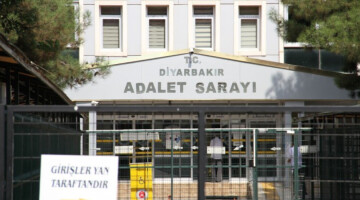Press in Arrest Journalist Prosecutions Database has published its Anatomy of Journalist Prosecutions in Turkey report based on the data it has gathered and analysed by monitoring, documenting and reporting on journalist prosecutions in Turkey.
Since 2018, Press in Arrest reviewed and monitored almost 600 court hearings in 240 cases prosecuting 356 journalists and stored their qualitative, quantitative and narrative data systematically in its database. Making use of this data, Press in Arrest’s report exposes the systemic use of criminal law measures against journalists, targeting their legitimate activities.
Confirming an ongoing pattern of ‘judicial harassment’ targeting journalists, the report also determines that Turkey is consistently failing to meet its obligations under international law.
Shared within the report, figures from the Press in Arrest Database illustrates that in criminal proceedings against journalists, the judicial authorities use, mainly the Penal Code and Law No. 3713 on Prevention of Terrorism to override Turkey’s international human rights obligations. They fail to properly apply the constitutional and press law principles. They also at times refuse to implement the judgments of the Constitutional Court as well as the European Court of Human Rights (ECtHR).
In a sense, studying their detailed anatomy, the report describes the judicial character of prosecutions of journalists under criminal and/or other legal provisions.
Anatomy of Journalist Prosecutions in Turkey report was prepared and authored by international human rights law expert and lawyer Ayse Bingol Demir.
In the report, Demir draws on data from the database, identifying key trends and observable patterns of judicial practices in the suppression of freedom of expression in Turkey, presenting evidence of systemic human rights violations.
Anatomy of Journalist prosecutions in Turkey focuses on four main areas that have been identified, through a comprehensive analysis of the database, as the common (but not exhaustive) grounds generating systemic rights violations of journalists in Turkey:
• The arbitrary use of criminal law and anti-terror legislation to target journalists: The data shows that a number of provisions of the Penal Code and the Law on Prevention of Terrorism are consistently used to target journalists. It is clear that numerous articles of these are overly broad and vague, and applied in a manner that fails to meet international human right standards.
• Arbitrary detention of journalists: The data collected makes it clear that the arbitrary use of arrests and pre-trial detention has become almost a rule used to curb real or perceived opposition to rulers and criticism of the government. This is despite the fact that in accordance with international human rights law, deprivation of liberty of journalists for their journalistic activities can only be justified in extreme and exceptional cases.
• Failure to respect due process and fair trial rights in the prosecutions of journalists: The report highlights that a number of due process rights guaranteed by international law such as the right to a public hearing, the principles of equality of arms and the presumption of innocence are consistently being violated in cases against journalists.
• A lack of independence and impartiality of the judiciary: The report finds that the composition of the Council of Judges and Prosecutors (CJP), the institution responsible for the appointment and promotion of judges and prosecutors as well as their dismissals and disciplinary sanctioning, is such that it cannot be truly independent by design. The amendments made to the Constitution in 2017 widely extended the control of the executive over the CJP, making the body further subject to political forces and undermining its independence.
To access the full version of Press in Arrest: Anatomy of Journalist Prosecutions in Turkey report please click here.















